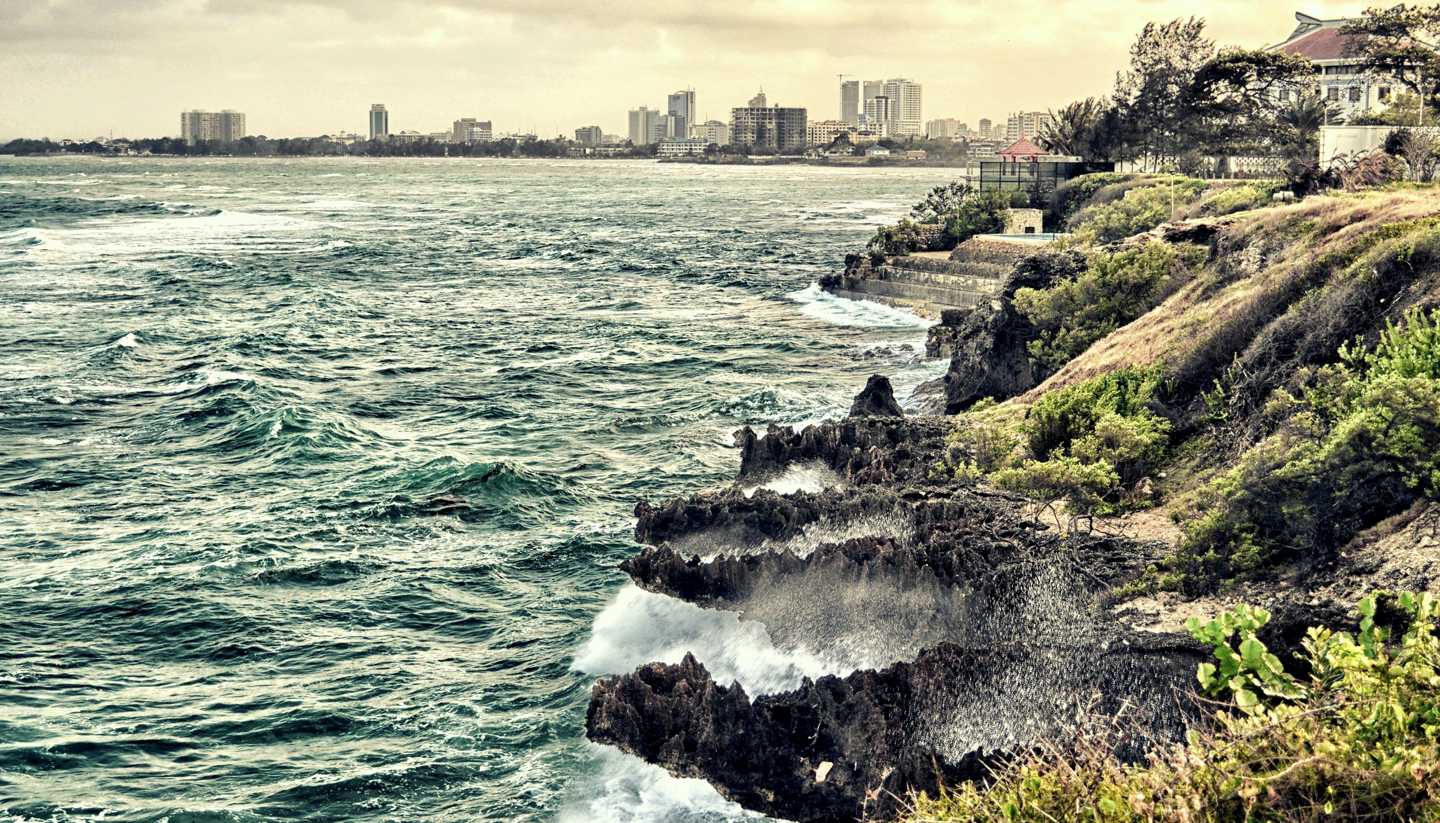Travel to Dar es Salaam
Flying to Dar es Salaam
There are no direct flights between the UK and Dar es Salaam, but connections can be made via Addis Ababa, Amsterdam, Doha, Dubai, Istanbul and Zurich. Airlines that complete the route include Turkish Airlines, Ethiopian Airlines, KLM, Emirates, Swiss and Qatar Airways.
Flight times
From London - 11 hours 30 minutes (including stopover); New York - 21 hours (including stopover); Los Angeles - 22 hours (including stopover); Toronto - 19 hours (including stopover); Sydney - 22 hours 30 minutes (including stopover).
Travel by road
Only around 20% of Tanzania's roads have tarmac, including those between Dar es Salaam and Arusha, and Dar es Salaam and Mbeya. In the wetter months, some roads further from the city centre are only passable using a 4-wheel drive. Driving at night can also be hazardous.
Traffic drives on the left and visitors need to be at least 18 years old with an International Driving Permit to take to the road. Drivers must carry proof of insurance at all times as well.
The Automobile Association of Tanzania (tel: +255 22 215 1837; www.aatanzania.org) can provide further information on driving in Tanzania.
Emergency breakdown services
Automobile Association of Tanzania (tel: +255 22 215 1837; www.aatanzania.org)
Routes
There are two main roads leading in and out of Dar es Salaam. Morogoro Road turns into the A7 and goes west to Morogoro and Iringa before forking off towards Makambako. The B2 flows south to Bungu and Lindi.
Coaches
Dar es Salaam's main bus terminal is at Ubungo, 8km (5 miles) west of the city on Morogoro Road. Prices are usually fixed and tickets should always be bought from the office, never from a tout. Recommended bus companies here include Dar Express (tel: +255 748 276 060) and Royal Coach (tel: +255 22 212 4073).
The bus company Scandinavian Express (tel: +255 22 218 4833; www.scandinaviagroup.com) operates its own terminal and ticket office on the corner of Msimbazi Street and Nyerere Road, which is quieter and closer to the centre than Ubungo. It also sells tickets online. It operates daily international bus services to Dar es Salaam from Nairobi, Arusha and Mombasa in Kenya, Kampala in Uganda and Lusaka in Zambia.
Express buses are quicker, less crowded and run according to a schedule. Some have air conditioning and toilets on board. Ordinary buses are more congested, slower and leave when full.
Time to city
From Morogoro - 3 hours; Iringa - 7 hours; Makambako - 9 hours; Bungu - 2 hours 30 minutes; Dodoma - 8 hours.
Travel by Rail
Services
Prone to delays and breakdowns, the rail services in Dar es Salaam are patchy and unreliable. The city has two main stations: Central Line Station, on the corner of Railway Street and Sokoine Drive, and Tazara Station, on the corner of Nyerere and Nelson Mandela Roads, around 6km (4 miles) southwest of the city centre.
Operators
Tazara (tel: +255 787 099 064; www.tazarasite.com) services arrive and depart from Tazara Station. They link Dar es Salaam to cities in the southwest and to Zambia. The Tanzanian Railway Corporation (tel: +255 22 211 7833; www.trctz.com) connects the Central Line Station in Dar es Salaam to Kigoma, Mwanza, Dodoma and Tabora. Tazara trains are generally more comfortable, but both remain undependable.
Journey times
From Mbeya - 22 hours; Kigoma - 24 hours; Mwanza - 24 hours.
Transfer
The best way of covering the 6km from Tazara Station to the city centre is by licensed taxi, but make sure you agree a price before setting off. Other options include hailing a dalla-dallas (small minibus) that’s heading towards New Posta, or contorting legs and luggage into a tuk-tuk.
Travel by boat
The Dar es Salaam Port is Tanzania’s main harbour and passengers disembark at the Malindi Wharf ferry terminal located on Sokoine Drive. Further information is available from the Tanzania Ports Authority (tel: +255 22 2211 0401; www.tanzaniaports.com).
Ferry operators
Azam Marine and Coastal Fast Ferries (tel: +255 22 212 3324; www.azammarine.com) runs high-speed catamarans from Zanzibar and Pemba to Dar es Salaam. You can buy tickets from the office at each terminal or book online.
Dhows also ply these routes. Foreigners are officially prohibited from catching non-motorised dhows and boat captains are subject to heavy fines if caught. There are two types of dhow: jahazi are large, lateen-sailed boats, while mashua are similar but smaller and therefore have proportionally wider hulls and usually a motor.
Transfer
Dalla-dallas (minibuses) run regularly past the ferry terminal. Alternatively it is not too far to walk to the city centre.


